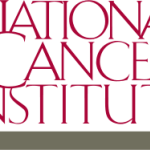- المجال: Government; Health care
- Number of terms: 6957
- Number of blossaries: 0
- Company Profile:
The National Cancer Institute (NCI) is part of the National Institutes of Health (NIH), which is one of 11 agencies that compose the Department of Health and Human Services (HHS). The NCI, established under the National Cancer Institute Act of 1937, is the Federal Government's principal agency for ...
A fully human monoclonal antibody directed against the human epidermal growth factor receptor ErbB3 (Her3) with potential antineoplastic activity. Anti-ErbB3 receptor monoclonal antibody MM-121 binds to binds to and inhibits ErbB3 activation, which may result in inhibition of ErbB3-dependent PI3K/Akt signaling and so inhibition of cellular proliferation and differentiation. ErbB3, a member of the epidermal growth factor receptor (EGFR) family of receptor tyrosine kinases, is frequently overexpressed in solid tumors, including breast, lung, and colorectal tumors of epithelial origin; it has no active kinase domain itself but is activated through heterodimerization with other members of the EGFR receptor family that do.
Industry:Pharmaceutical
A fully human monoclonal antibody directed against human death receptor 5 (DR5; TRAIL-R2; TNFRSF10B) with potential proapoptotic and antineoplastic activities. Mimicking the natural ligand TRAIL (tumor necrosis factor-related apoptosis inducing ligand), apomab binds to DR5, which may directly activate the extrinsic apoptosis pathway and indirectly induce the intrinsic apoptosis pathway in tumor cells. DR5 is a cell surface receptor of the TNF-receptor superfamily and is expressed in a broad range of cancers.
Industry:Pharmaceutical
A fully human monoclonal antibody directed against angiopoietin 2 (ANG2) with potential antiangiogenic and antineoplastic activities. Anti-ANG2 monoclonal antibody REGN10 binds to ANG2 and interferes with the interaction between Ang2 and its receptor TEK tyrosine kinase (Tie2), which may inhibit tumor cell angiogenesis and tumor cell proliferation. ANG2 is upregulated in a variety of cancer cell types and plays a crucial role in angiogenesis.
Industry:Pharmaceutical
A fully human monoclonal antibody (MoAb) against human A1 domain of tenascin-C, in small immunoprotein (SIP) format conjugated with iodine 131 with potential antineoplastic activity. Iodine I 131 MoAb F16SIP binds to tenascin-C on the vascular tissues and delivers cytotoxic radiation to the tumors, thereby minimizing systemic radiotoxicity. Tenascin-C is a glycoprotein of the extracellular matrix, and the large isoform of this matrix protein is expressed and restricted around vascular structures in the tumor stroma of a variety of different tumors.
Industry:Pharmaceutical
A fully human monoclonal agonistic antibody directed against tumor necrosis factor-alpha (TNF-alpha)-related apoptosis-inducing ligand receptor-2 (TRAIL-R2) with potential antitumor activity. Mimicking the natural ligand TRAIL, lexatumumab binds to and activates TRAIL-R2, which may trigger apoptosis in and inhibit the growth of TRAIL-R2-expressing tumor cells. TRAIL-R2, also known as death receptor 5 (DR5), is a member of the TNF receptor family and is expressed on many malignant cell types.
Industry:Pharmaceutical
A fully human monoclonal antibody (mAb) agonist of the cell surface receptor CD40 with potential immunostimulatory and antineoplastic activities. Similar to the CD40 ligand (CD40L or CD154), CD40 agonist monoclonal antibody CP-870,893 binds to CD40 on a variety of immune cell types, triggering the cellular proliferation and activation of antigen-presenting cells (APCs), activating B cells and T cells, and enhancing the immune response; in addition, this agent may activate CD40 present on the surfaces of some solid tumor cells, resulting in apoptosis and decreased tumor growth. CD40, a member of the tumor necrosis factor (TNF) receptor superfamily, is expressed on various immune cells, many B-cell malignancies, and some solid tumors, mediating both indirect tumor cell killing through the activation of the immune system and direct tumor cell apoptosis.
Industry:Pharmaceutical
A fully human monoclonal agonist antibody directed against the extracellular domain of human TRAIL (tumor necrosis factor-related apoptosis-inducing ligand) receptor 2 (TR-2) with potential antineoplastic activity. Conatumumab mimics the activity of native TRAIL, binding to and activating TR-2, thereby activating caspase cascades and inducing tumor cell apoptosis. TR-2 is expressed by a variety of solid tumors and cancers of hematopoietic origin.
Industry:Pharmaceutical
A fully human IgG2 monoclonal antibody directed against the human hepatocyte growth factor (HGF) with potential antineoplastic activity. Rilotumumab binds to and neutralizes HGF, preventing the binding of HGF to its receptor c-Met and so c-Met activation; inhibition of c-Met-mediated signal transduction may result in the induction of apoptosis in cells expressing c-Met. C-Met (HGF receptor or HGFR), a receptor tyrosine kinase overexpressed or mutated in a variety of epithelial cancer cell types, plays a key role in cancer cell growth, survival, angiogenesis, invasion, and metastasis.
Industry:Pharmaceutical
A fully human IgG1 monoclonal antibody directed against the platelet-derived growth factor receptor alpha (PDGFR alpha) with potential antineoplastic activity. Olaratumab selectively binds to PDGFR alpha,. Blocking the binding of its ligand, PDGF; signal transduction downstream of PDGFR through the MAPK and PI3K pathways is inhibited, which may result in inhibition of angiogenesis and tumor cell proliferation. Overexpressed by various cancer cell types, PDGFR is a transmembrane protein tyrosine kinase receptor, consisting of isoforms A and B, that is important in regulating cellular growth and differentiation and angiogenesis.
Industry:Pharmaceutical
A fully human IgG1 monoclonal antibody directed against the human insulin-like growth factor-1 receptor (IGF-1R) with potential antineoplastic activity. Cixutumumab selectively binds to membrane-bound IGF-1R, thereby preventing the binding of the natural ligand IGF-1 and the subsequent activation of PI3K/AKT signaling pathway. Downregulation of the PI3K/AKT survival pathway may result in the induction of cancer cell apoptosis and may decrease cancer cellular proliferation. IGF-1R, a receptor tyrosine kinase of the insulin receptor superfamily overexpressed by many cancer cell types, stimulates cell proliferation, enables oncogenic transformation, and suppresses apoptosis; IGF-1R signaling has been implicated in tumorigenesis and metastasis.
Industry:Pharmaceutical
